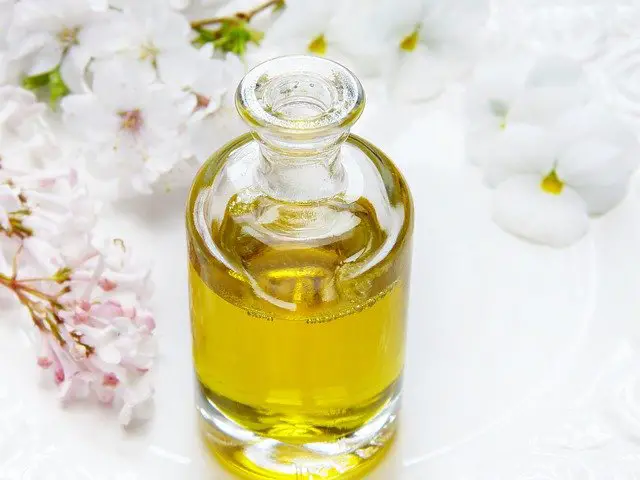Having aphids and ants in a controlled proportion and number might be beneficial to your garden.
Aphids help nourish the ants population by secreting a special sugary substance known as honeydew which feeds the ants, and then the ants themselves help us aerate the soil by their burrowing activities.
Apart from that, they also eat some kinds of fungus that attack our plants as well as predate on some insect pests, in other words, ants are very useful.
However, when the aphid population rises, the ant population will follow suit, and this could lead to some serious problems.
The ants can over step their boundaries and begin to eat the insects that are beneficial to the plants, some could even go as far as eating the leaves and fruits, a nightmare to farmers. But how do we combat this issue?
That’s where neem oil comes in, but is it effective? Does neem oil kill aphids and ants?
Before I answer that, I’d like you to know what exactly is neem oil
Neem oil, which mainly grows in the Indian subcontinent, is an organic substance obtained from the neem tree.
It has been used for hundreds of years to treat various diseases like stomach ulcers as well as get rid of fungal infections, and control pests.
Apart from that, components of neem oil have been used for cosmetics and toothpaste.
It has a bitter taste (not really advising you to stuff it in your face though), is yellow or brown in color and smells like garlic.
Neem oil is very versatile but the secret ingredient to it’s insecticidal and pesticidal properties lies in a special chemical known as Azadirachtin.
Okay, back to the question, can neem oil kill ants and aphids?
The answer to that question is a solid yes.
Neem oil can and does kill aphids and ants. It does this by directly poisoning the Aphids and destroying the ants colonies from inside. The explanation sounds a bit technical but you’ll love it.
Neem oil contains a toxic substance known as Azadirachtin, when the insect pests ingest the neem oil, they’ll eventually excrete about 80% of the substance.
The problem (to the insects) here is that the remaining 20% retained in the body stays in there for a long period of time.
While it’s in there, the ant would lose appetite, lose it’s ability to lay eggs and may not even be able to grow to adulthood. This would greatly damage the ecological order of their colony.
I mentioned earlier that the insects need to ingest the substances before it would poison them, here’s how.
When you spray the neem oil on trees, the leaves get some of them and then the aphids come to eat them. The aphids eat the leaves bearing some of the neem oil and since their bodies can’t really break them down (the neem oil), they get excreted into the honeydew they release.
Like I also stated before, ants love honeydew so when they eat the honeydew, the neem oil is also taken into their bodies. The ants, infected by the neem oil goes back into their colony and vomits it for other ants to ingest (it’s weird but that’s how they help each other feed).
When the colony ingests the poisonous substance, worker ants cannot feed and grow, thus there’s a breakdown in the colony, and when the Queen ant takes it, she loses her fertility which leads to the termination of that colony.
Meanwhile, the Aphids which directly ingested the neem oil are already long dead.
Apart from this, if you spray the oil and it directly touches the bodies of the ants and aphids, it will kill them by suffocation. How? Well, ants as well as other insects do not have a nose, they breathe through a series of tiny holes known as spiracles which are located on the sides of their bodies.
If the oil luckily lands on their bodies, it would slip into the holes and block them, causing the insects to die by suffocation.
Those are the two ways neem oil can kill ants and aphids, but how long does it take exactly?
If the neem oil touches the body of the insects, death by suffocation happens within hours but if it’s ingested, it could take weeks before you see results.
While the former offers a relatively quicker death, not a lot of insects are directly affected by it. The latter, as slow as it might seem, attacks much more ants and aphids from an ecological level, and offers a remedy that is long term.
To use the latter technique, you’ll have to focus more of your attention on the trees and plants than on the insects themselves to kick start a chain reaction.
But how do I do that? And would it harm the plants too?
Neem oil is safe for your plants and has absolutely no adverse effects on the fruits and the people who consume them.
Also, if the neem oil is sprayed on plants like lettuce and kale, you’ll need to thoroughly wash them before eating. In summary, no, it doesn’t harm the plants.
However, if you use too much or improperly diluted neem oil, it would begin to heat up when the sun comes up, thus causing the leaves to burn up.
It could also slow down photosynthesis by blocking the leaves from receiving direct sunlight, this would make it turn yellow and die.
How do I correctly apply neem oil to my plants?
Mix two tea spoons of your liquid soap (neem oil doesn’t mix well with water so the soap helps it mix) with one gallon of water, after which you add the neem oil itself (4 teaspoons to be exact) and spray. Shake the spray vessel at regular intervals.
Spray both sides of the leaves with the solution until it starts dripping from the leaves.
You can even spray on the stem and the soil slightly around the root, you know, just in case some of the insects try to crawl under the root to hide.
If there’s any remaining, you could spray ant trails as well other places you suspect they could be hiding, for good measure.
Do all of this in the evening and morning. Not only does this prevent the sun from scorching the leaves, it also ensures that some other beneficial insects may have gone by that time.
It’s advisable to wear gloves while using the equipment because you never know if you might be allergic to neem oil, plus, it does get quite messy.
Spray neem oil on your plants once a week and ensure you don’t spray on new transplants or clearly stressed plants.
If you’re not too sure about getting the whole thing right, it would be wise of you to spray the oil on a very small section of your garden and keep an eye on it.
If it’s adversely affected, recalibrate your measurements and try again on another smaller portion, if there are no negative effects, maintain the measurements and use it for your garden.
Is neem oil also bad for humans?
If you’re using neem oil to treat your garden and kill insects, there isn’t so much to worry about. The problems arise when you start wrongly using it for other purposes.
Neem oil components or processed neem oil is used to cure some certain diseases like stomach ulcers, as well as make toothpaste and cosmetics.
However, if an infant ingests neem oil in it’s raw, undiluted form, it’s toxicity can cause kidney failure, seizures, encephalopathy and brain ischemia. It is also very toxic to pregnant women and children.
This doesn’t make non pregnant adults completely free to ingest raw neem oil as there have also been very few cases of poisoning. In other words, it’s safer to consume processed, certified neem oil products than the raw undiluted neem oil itself.
Also, despite the fact that neem oil can be used for skin care, it is also capable of triggering allergic reactions in some consumers.
Apart from ants and aphids, what other insects can neem oil kill?
Neem oil is responsible for taking care of a wide variety of insect pests like
and other small soft bodied insects.
Frequently Asked Questions
If I spray neem oil on my garden, would it kill the birds too?
Neem oil is not toxic to birds and bees but is mildly toxic to fish and some other aquatic creatures.
Does prolonged exposure cause cancer?
No, neem oil is not carcinogenic, people have been exposed to the substance for hundreds of years and there have been no connection to any cancer case. Neem oil cannot alter or damage genes.
Conclusion:
Neem oil, although very effective and organic must be used with care. It’s best to note that raw undiluted neem oil is very dangerous to infants and pregnant women.
Fortunately, they typically come with instructions, follow them, try your best to use it for what it’s for, and you’ll have nothing to worry about.

